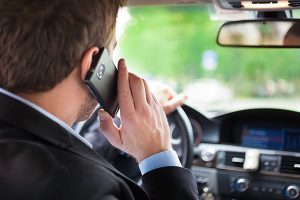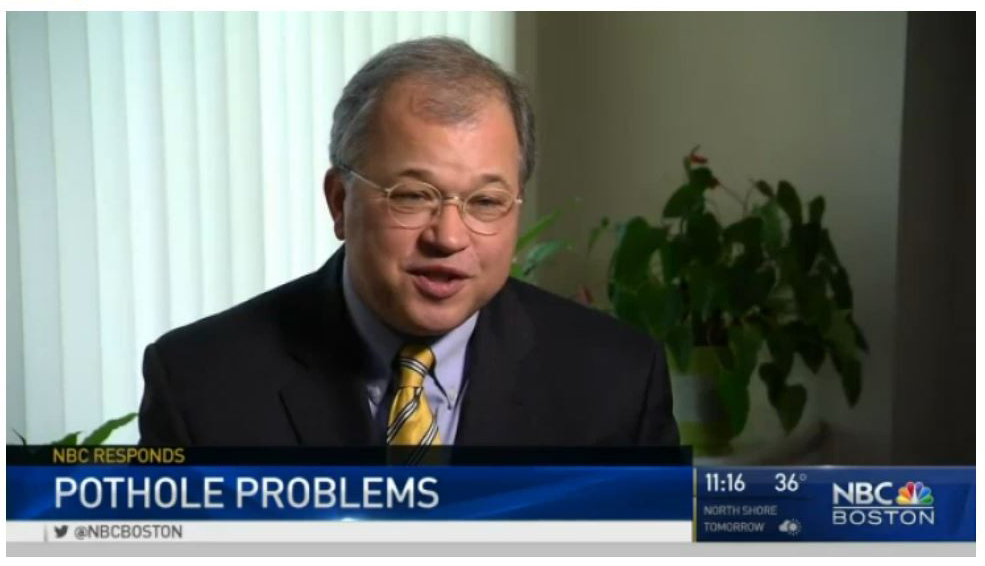Posts Tagged ‘Massachusetts’
Attorney Marc Breakstone Teaches Arlington Students His Bike Safety Pledge
Attorney Marc L. Breakstone’s message to fifth graders in Arlington yesterday? Ride safe.
Breakstone, White & Gluck kicked off our 2017 Project KidSafe campaign yesterday, donating 50 helmets to Peirce Elementary School in Arlington. Attorney Breakstone participated in a bike safety training led by Richard Fries, executive director of MassBike. Helmets were distributed to children who needed one after the training.
The training was coordinated by Mary Alice Burke, the school’s parent coordinator of Safe Routes to School programming. Nicole Edmonds, a school outreach coordinator for the Safe Routes to School office in Boston and Arlington Police Officer Corey Rateau also participated.
Launched in 2013, Breakstone, White & Gluck’s Project KidSafe campaign has donated more than 10,000 helmets to children, with a goal of preventing serious head injuries and encouraging safe riding. Under Massachusetts law, all cyclists age 16 or younger must wear bicycle helmets. But all cyclists are strongly encouraged to wear helmets, regardless of age. According to the National Highway Traffic Safety Administration, helmets can reduce the risk of head and brain injuries in bicycle accidents by up to 88 percent, making them the single most effective way to reduce head injuries and save lives.
This is the fourth year we have donated bicycle helmets to children in the Arlington community. In Arlington, our helmets support Safe Routes to School bike and pedestrian training in elementary schools. In addition to Peirce Elementary School, we will also donate make donations to the Hardy Elementary School and the Arlington Bicycle Advisory Committee this year. The Arlington Bicycle Advisory Committee will distribute helmets to children who need one at Arlington Town Day in the Fall.
Learn more about our Project KidSafe bike safety campaign.
About Breakstone, White & Gluck
Breakstone, White & Gluck is a Boston personal injury law firm which is committed to the safety of all bicyclists in Massachusetts. We have over 100 years combined experience representing bicyclists injured by the negligence of others. If you, or a member of your family, has been injured in a bicycle incident, please feel free to contact us for a free legal consultation at 800-379-1244 or 617-723-7676 or use our contact form. Thank you and RIDE SAFE!
Can the City of Boston Be Held Liable for Self-Driving Accidents? Attorney Marc Breakstone Interviewed as Legal Expert for Boston Herald Article
 Attorney Marc L. Breakstone was quoted as a legal expert in a Boston Herald article titled “In Driver’s Seat With Insurance” (March 31, 2017). NuTonomy, the self-driving car company now testing its hands-free technology in Boston, has taken out a $5 million insurance policy to guard against lawsuits. Earlier this month, a self-driving Uber vehicle was involved in a car accident in Tempe, Arizona. Police found the Uber vehicle was traveling at 38 mph, below the speed limit, when the collision occurred and was not at fault. While there were no serious injuries, the accident has raised concerns.
Attorney Marc L. Breakstone was quoted as a legal expert in a Boston Herald article titled “In Driver’s Seat With Insurance” (March 31, 2017). NuTonomy, the self-driving car company now testing its hands-free technology in Boston, has taken out a $5 million insurance policy to guard against lawsuits. Earlier this month, a self-driving Uber vehicle was involved in a car accident in Tempe, Arizona. Police found the Uber vehicle was traveling at 38 mph, below the speed limit, when the collision occurred and was not at fault. While there were no serious injuries, the accident has raised concerns.
Attorney Breakstone was asked whether the City of Boston could be held liable if there is an accident involving NuTonomy. He said no, but read his full answer.
Attorney Reza Breakstone has written on the topic of self-driving cars and the legal questions they raise. In 2016, he co-wrote an article titled, “The Self Driving Car: Science Fiction Becomes Reality, Creating a Legal Quandary,” for The Litigator, the official publication of the Capital City Trial Lawyers Association in Sacramento, California.
For Massachusetts Motorcyclists, It’s Time for A Pre-Season Safety Check
 Motorcycle season is almost here. For riders, this means goodbye snow and cold; hello to the open road.
Motorcycle season is almost here. For riders, this means goodbye snow and cold; hello to the open road.
Good pre-season preparation is essential for motorcyclists. Take some time to inspect your motorcycle and helmet and review the Massachusetts driving manual. Review your auto insurance as well; most drivers and motorcyclists do not carry enough insurance.
Wear a Helmet. Under Massachusetts law, motorcyclists must wear helmets which have been approved by the U.S. Department of Transportation (DOT). Helmets save lives so make sure yours is in good condition. If you have been involved in a motorcycle accident or fall, replace your helmet.
Clothing and Gear. Select the appropriate clothing and gloves for driving conditions.
Licensing and Insurance. Class M licenses are required for Massachusetts motorcyclists. Anyone who is 16 or older may take the Class M exam, unless the Registry of Motor Vehicles (RMV) has taken away your right to operate.
Once you pass the exam, you must obtain auto insurance for your motorcycle. It pays to do your homework here. Under the law, Massachusetts motorcyclists are only required to purchase compulsory insurance. But you can and should also purchase optional coverage for more protection.
We encourage you to ask your insurance agent about insurance laws for motorcycles and about coverage for accidents involving underinsured and uninsured drivers. If you are ever injured and the driver responsible does not have adequate insurance, you may have to look to your own insurance policy to fill in the gap and pay some of your medical bills and other compensation.
Insurance companies do not provide for Personal Injury Protection (no-fault benefits) on motorcycle policies. We strongly recommend that you purchase Medical Payments coverage. That coverage will provide insurance for you and your passenger in the event of an accident.
Follow the Rules of the Road. Massachusetts motorcyclists must follow the same rules as other drivers, but there are some differences. If you have questions, you can quickly check the Massachusetts Motorcycle Manual online.
Defensive Driving. One topic covered in the manual is defensive driving. Commit to keeping a safe distance between you and other vehicles on the roads to avoid a motorcycle accident.
Motorcycle Accident Statistics
- Nearly 5,000 people died in motorcycle accidents in 2015, up 8 percent from 2014, according to the National Highway Traffic Safety Administration (NHTSA). In 2015, 88,000 motorcyclists were injured.
- Motorcycle deaths occurred 27 times more frequently than other fatalities on the road, according to NHTSA figures.
About Breakstone, White & Gluck
The lawyers at Breakstone, White & Gluck of Boston have over 100 years combined experience representing motorcyclists who have been seriously injured by the negligence of drivers. Our attorneys have recently negotiated settlements of $3.75 million, $3.5 million and $1.25 million for injured motorcyclists. Read more about our motorcycle accident case results.
After Child’s Death, Another Safety Warning: Keep Hoverboards Out of Your Home and Away From Your Loved Ones
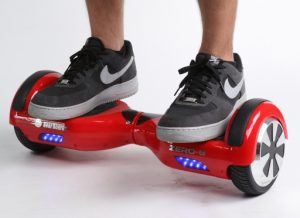 We saw the worst that can happen last week in Harrisburg, PA when a hoverboard caught on fire in a family’s home, claiming the life of a three-year-old child.
We saw the worst that can happen last week in Harrisburg, PA when a hoverboard caught on fire in a family’s home, claiming the life of a three-year-old child.
The hoverboard reportedly ignited while charging, destroying the home. The three-year-old girl died at a local hospital and two other girls were left in critical condition. The girl’s father and a teenage boy were treated for smoke inhalation.
This tragedy was compounded by another death; a local firefighter was reportedly killed in a motor vehicle accident while driving to the fire, the victim of an alleged drunk driver who now faces charges.
This is the first hoverboard fire to claim a life, though we have heard plenty about the product’s dangers. The hoverboard is a self-balancing electric scooter with no handlebars. You may anticipate injuries such as falls and broken bones. But the greater risk lies with the explosive lithium-ion battery packs, which have caused massive fire damage and now a child’s death.
Airlines, Retailers and the Federal Government
Airlines, retailers and the federal government have all taken action against hoverboards.
In December 2015, several major airlines banned hoverboards, dashing the hopes of last-minute holiday shoppers who wanted the cool new toy celebrities were riding all over social media. The airlines said the lithium-ion batteries could cause a fire onboard, and manufacturers were not providing consistent information on the size and power of batteries.
Over the next few months, hoverboards ignited and burned two homes to the ground, including one in Nashville. As her father watched, a teenager was forced to jump from an upstairs window.
Shortly thereafter, Amazon and Best Buy stopped hoverboard sales (at least temporarily). By July 2016, half a million hoverboards were recalled. Amazon was then named as a defendant in a $30 million lawsuit for selling the hoverboard responsible for the Nashville blaze. As the seller of the allegedly defective hoverboard, a retailer may be found liable for selling a defective product under most state product liability laws.
Hoverboard Recall
The July 2016 recall covered hoverboards from 10 manufacturers, all made in China. Consumers were urged to stop using the products immediately and return them. Check online to see if you have a recalled hoverboard.
According to a Consumer Product Safety Commission (CPSC) spokesman, the agency has investigated more than 60 hoverboard fires since Fall 2015. Massachusetts has seen several hoverboard home fires, including in Chelmsford and Somerville, according to The Boston Globe.
For all the dangers, hoverboards are still being sold. In 2016, the CPSC worked with UL, a global product safety testing organization, to develop new standards for hoverboards. Time will tell if the new generation is any safer. For now, hoverboards are a product to keep out of your home and far away from your family. Please share our blog with anyone who has a hoverboard or wants to buy one.
Results for Clients in Product Liability Claims
Free Legal Consultation 800-379-1244
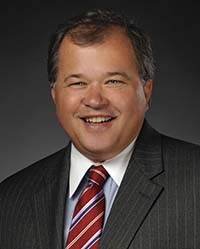 Read about Attorney David W. White’s $1.15 million product liability award for his client who was seriously injured by defective fitness equipment.
Read about Attorney David W. White’s $1.15 million product liability award for his client who was seriously injured by defective fitness equipment.
With over 100 years combined experience in product liability cases, the attorneys of Breakstone, White & Gluck have obtained numerous awards for clients injured by defective products. Our attorneys are known throughout New England for our results in these cases and have been consistently recognized as Top 100 New England Super Lawyers and Top 100 Massachusetts Super Lawyers.
Safety Checklist: Check Your Baby Strollers and Other Children’s Products Before Spring
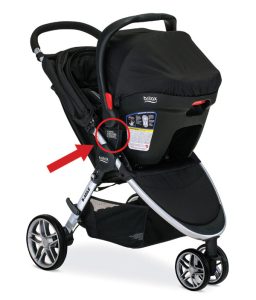 As Spring approaches, parents will be reaching for outdoor toys and children’s equipment. Baby strollers are one of the first products to come out.
As Spring approaches, parents will be reaching for outdoor toys and children’s equipment. Baby strollers are one of the first products to come out.
Before you use a stroller, check for loose or worn parts. Then find out if the stroller has been subject to a product recall or caused injury. You can check online now on the Consumer Product Safety Commission website.
Baby Stroller Recalls. We started with baby strollers because there have been several baby strollers recalled in the past year, including Britax, Aria Child and Phil & Teds strollers. Britax has actually issued two sets of recalls over the past 15 months, one for 60,000 strollers in January 2016 and another for more than 700,000 strollers in February 2017.
In December 2016, Aria Child recalled 29,000 strollers, instructing consumers to stop using the products and contact the company for a free replacement. Five consumers were pinched by the hinge mechanism of the $180 stroller. Four of these consumers needed stitches for cuts. In addition, 71 strollers malfunctioned, by folding unexpectedly during use. Twelve adults and children suffered bumps or bruises. One adult fell and fractured a wrist and elbow.
In February, Britax Child Safety Inc. recalled more than 700,000 strollers, including the Britax B-Agile and BOB Motion strollers. The strollers had defective mounts which attached to the car seat carrier. Britax received 44 reports of car seats detaching and 26 injuries including scratches, bruises and bumps to the head. More than 1,300 receiver mounts on strollers were damaged. Britax has instructed parents not to use the strollers with the travel system and to contact the company for a repair kit.
Check for Other Recalls. As consumers, we are not always aware of recalls, especially if products are passed down or are not registered with the manufacturer. Make it an annual routine to check on product recalls each Spring before your child starts using them.
Checklist of Toys and Children’s Products to Check for Safety Before Spring
Dressers. Ikea recalled 29 million dressers in June 2016, following the deaths of six children. The Consumer Product Safety Commission recommends parents always secure dressers to a wall.
Lane Furniture. The Lane Furniture recall of cedar chests is a painful topic for many people in Massachusetts. We only include it here as an example of a product which has been recalled, yet continues to harm consumers.
In 2014, two children from Franklin, Mass. tragically suffocated while playing and becoming trapped in a Lane Furniture cedar chest which had been recalled because the latch was unsafe. This was not the first time a child was killed. According to the Consumer Product Safety Commission, 34 children have become trapped and died in similar chests since 1996. Lane Furniture had first recalled 12 million of the cedar chests in 1996. But many chests are likely still in use with the dangerous latch in place, in homes, in storage and consignment shops. They are so dangerous because they are nondescript and would not stand out to many consumers.
Car Seats. Car seats or child passenger safety seats are a source of frustration for many parents. If you are struggling with yours, check online to see if it has been recalled. Millions of parents were impacted by the Graco car seat recalls in recent years. The buckles in these car seats were defective, forcing parents to cut the straps to free children in some cases.
Outdoor Toys to Check. This time of year, make sure to also check for recalls related to swingsets, bicycles, pools and other outdoor toys. Even if these products are not recalled, carefully inspect them. They age; repair any broken pieces. Throw away products which are broken and could cause injury. Remember, if a product can harm your child, it can cause someone else injury. Take it apart before you throw it away.
Conclusion
In a perfect world, you would not have to inspect your children’s products periodically or check for product recalls. Manufacturers have a responsibility to properly design and test products and should take those steps. When they do not, they can be found liable for injuries resulting from defects. They may also be subject to government investigation and fines.
About Breakstone, White & Gluck
The Boston product liability attorneys at Breakstone, White & Gluck have over 100 years combined experience representing those injured by defective products and medical devices. In recent years, we have obtained settlements of $1.15 million and $2.5 million for individuals injured by defective products or products which were misused.
If you have been injured, learn your rights. For a free legal consultation, contact us at 800-379-1244 or 617-723-7676 or use our contact form.
Will Massachusetts Pass a Handheld Cell Phone Ban for Drivers?
As attorneys, we have represented hundreds of victims of motor vehicle crashes over the past three decades. In recent years, we have seen texting while driving and cell phone use by drivers multiply at an alarming rate, causing a stunning number of injuries and deaths. These injuries are preventable, but each year, drivers continue to reach for their phones and the toll rises.
According to the US Department of Transportation, cell phones are now involved in 1.6 million auto crashes each year, injuring 500,000 people and causing 6,000 deaths. While many states have already passed legislation to reduce distracted driving accidents, some are now considering additional measures, including Massachusetts.
Massachusetts lawmakers passed the Safe Driving Law in 2010, which banned texting while driving. There was no further action until January 2016, when the Massachusetts state Senate passed a bill banning handheld cell phone use. The ban would have allowed drivers to use hands free technology to dial and talk. According to the State House News Service, the Massachusetts House of Representatives gave initial approval to a similar bill but the legislation stalled.
With Governor’s Comments, Handheld Cell Phone Debate Returns to the News
 There was no update for several months. Then Governor Charlie Baker spoke in February, indicating he may not support a handheld ban.
There was no update for several months. Then Governor Charlie Baker spoke in February, indicating he may not support a handheld ban.
“I don’t want to get out of the business of making it possible for people to talk to other people when they’re driving. Because I think the texting thing is a big problem. I’m not sure I believe that the talking thing is,” Baker said during his “Ask the Governor” segment on WGBH Thursday. His comments were published by the State House News Service.
When the show’s co-host noted that drivers could use hands-free Bluetooth devices, Baker said:
“So now we’re just going to let people who can afford to put a Bluetooth in their new car to have the ability to talk when they’re in a car?” Baker responded. “But we’re not going to let anybody else? Hmm. Let me think about that one a little.”
Following the interview, The Boston Herald called on state lawmakers to resume their work to ban handheld cell phones: “Drivers in Massachusetts have proven that when it comes to using their phones behind the wheel they’re incapable of regulating themselves.”
When texting while driving was banned in 2010, texting was the major concern for distracted driving, the Herald wrote. Today, more people have smartphones which offer quick access to social media and other apps.
How Widespread is Texting While Driving in Massachusetts?
Critics say enforcement for Massachusetts’ texting while driving ban is challenging when drivers can hold their phones to talk, but not for other purposes. Police have worked through some of these issues. According to a Boston Globe analysis, Massachusetts police officers wrote 6,131 tickets in 2015, compared to 1,153 in 2011, the first year of the ban. Overall, between late 2010 and mid-April of 2016 when the analysis was published, 18,383 tickets were issued for texting while driving in Massachusetts.Drivers under 40 years old received the most tickets and many drivers got caught during Distracted Driving Awareness Month, when many local police departments receive safety grants for enforcement.
Where Proposed Legislation Now Stands in Massachusetts
Massachusetts is one of 46 states which have texting while driving laws. Just 14 states also ban handheld cell phone use, according to the National Conference of State Legislatures. New Hampshire, Vermont and Connecticut are among the early adopters.
Expect to hear more debate about a handheld cell phone ban in Massachusetts at some point in the future. While Governor Baker has voiced reservations, when the 2017-2018 legislative session began in January, the Massachusetts House of Representatives referred legislation for hands-free cell phone devices to the Legislature’s Joint Committee on Transportation.
Where to Find Distracted Driving Safety Campaigns and Information
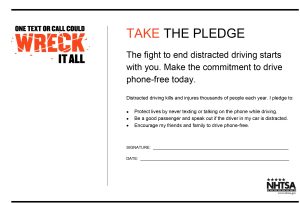
Safety campaigns are critical to preventing distracted driving accidents. There are many out there, offering programs for schools and information online. One effort is from the Massachusetts Academy of Trial Attorneys (MATA), which brings its “End Distracted Driving” program to high schools. We support this campaign. Two of our partners, Marc L. Breakstone and Ronald E. Gluck, serve on the MATA Board of Governors. Partner David W. White is a long-time member.
Another effort comes from the National Highway Traffic Safety Administration (NHTSA), which offers this pledge which family members can sign to promise each other they will not use a cell phone while driving.
Distracted Driving Prevention and Safety Campaigns:
Distraction.gov: Official U.S. website for distracted driving.
It Can Wait!: AT&T’s documentary to stop distracted driving.
Report: Dramatic Rise in Traffic Accidents in 2016
Driving on U.S. roads became more dangerous in 2016. Preliminary data from the National Safety Council shows more than 40,000 people died in motor vehicle crashes last year, a 6 percent increase from 2015.
- This was the first year more than 40,000 people have died in traffic accidents since 2007.
- According to The New York Times, 2015 and 2016 saw a 14 percent increase in traffic deaths, the largest two-year increase in more than half a century.
- In addition to deaths, an estimated 4.6 million people suffered serious injuries in car accidents last year. The total costs came to $432.5 billion, for motor vehicle deaths, injuries and property damages.
- In Massachusetts, 399 traffic deaths were reported in 2016, a 13 percent increase over the prior year (these are also preliminary figures).
The National Safety Council said lower gasoline prices and an improving economy may be helping to fuel the rise in traffic deaths. Others point to seat belt laws and texting while driving and other distracted driving behaviors.
If you drive, take to the roads safely. Follow the speed limit and make sure everyone in your family puts down their cell phone while driving.
Read our Article: Understanding and Buying Auto Insurance in Massachusetts
Until it happens to you, few people understand the costs associated with a car accident, and the toll on your physical health and emotional well-being. We hope you are never injured, but encourage you to read our article to protect yourself and your family.
Nine Pedestrian Accidents in One Day Highlights Need for Vision Zero, Other Safety Efforts in Boston
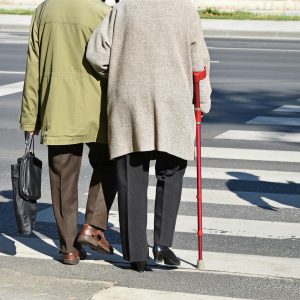 The Boston Herald has renewed concerns about pedestrian safety with a report that nine pedestrians were hit in Boston on the same day.
The Boston Herald has renewed concerns about pedestrian safety with a report that nine pedestrians were hit in Boston on the same day.
On Tuesday, January 17th, the city saw its worst day for pedestrian accidents since at least June 2015, according to a Herald analysis. The first pedestrian accident occurred at a McDonald’s restaurant on Massachusetts Avenue in the South End. This accident occurred shortly after 9:30 a.m. The other eight accidents occurred between 4:30 p.m. and about 9 p.m., in Dorchester, Jamaica Plain, Roxbury, Brighton and Hyde Park.
Pedestrian Accidents: The Numbers
Pedestrian accidents are a concern for everyone on the roads. In Massachusetts, we do a lot of walking. According to WalkBoston, more than 10 percent of all trips in Massachusetts are taken on foot (this is more than 40 percent greater than the national average).
When it comes to work, 12 percent of Massachusetts residents commute by walking. The number is higher in some communities. In Cambridge, 24 percent of residents walk to work.
According to the Boston Herald, pedestrian injuries are on the rise in Boston. In 2016, 904 pedestrians were injured in crashes, a 15 percent increase over 2015. Twelve pedestrians died in 2016, up from nine in 2015.
Mayor Marty Walsh has formed a Vision Zero task force with a goal of eliminating fatal and serious traffic fatalities in Boston by 2030. As part of the Vision Zero work, the city lowered its default speed limit from 30 mph to 25 mph in early January. The change does not impact state-owned roads. If you live or work in Boston, learn more about Boston’s speed limit change.
Pedestrian Safety Tips
Use Sidewalks. The sidewalk is the safest place for pedestrians. If no sidewalks are available, walk on the left side, against traffic so that drivers have a chance to make eye contact with you.
At Night. Carry a flashlight and wear a reflective safety vest if you walk at night or in the early morning.
Use Crosswalks and Traffic Signals. Use crosswalks and press the Walk button when available. Drivers are required to stop for you under Massachusetts law. Other cars are not allowed to pass the stopped vehicle.
Pay Attention to Safety Alerts. Winter is a harsh time for pedestrians. Pay attention to safety alerts and travel warnings from the State of Massachusetts, the MBTA, public schools, communities and your employers.
Beware of Snowbanks and Snowplows. Tall snowbanks obstruct the view between drivers and pedestrians. Wear a neon safety vest if you must walk in travel in these areas and pay attention to traffic. After a storm, expect to see snowplows on streets and working in parking lots. Take it slow.
Beware of Construction Areas. Areas such as North Station in Boston are now much harder for pedestrians to travel due to construction. Pay attention to notices about construction schedules and avoid building activity and construction workers whenever possible.
Watch for Cars Backing Up. Pedestrian accidents can happen when drivers neglect to check for pedestrians as they pull out of a parking space or a driveway. Watch out for these drivers and stop to let them back out.
From Breakstone, White & Gluck’s Experience
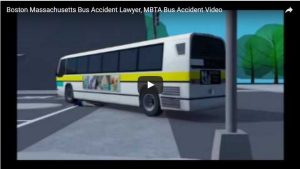 Our attorneys have over 100 years combined experience representing pedestrians who have been injured by the negligence of drivers and defective roadway conditions. Our law firm represented one pedestrian who was struck by a MBTA bus in a crosswalk in 2005. The pedestrian suffered serious injuries and required amputation of her right leg. The case went to trial and was appealed by the MBTA. The final award was $7.1 million for our client. See the re-enactment video we prepared for trial. It shows one way pedestrians can be put at serious risk.
Our attorneys have over 100 years combined experience representing pedestrians who have been injured by the negligence of drivers and defective roadway conditions. Our law firm represented one pedestrian who was struck by a MBTA bus in a crosswalk in 2005. The pedestrian suffered serious injuries and required amputation of her right leg. The case went to trial and was appealed by the MBTA. The final award was $7.1 million for our client. See the re-enactment video we prepared for trial. It shows one way pedestrians can be put at serious risk.
Attorney David W. White Is Interviewed for NBC Boston Story on Pothole Damage and Car Accidents in Massachusetts
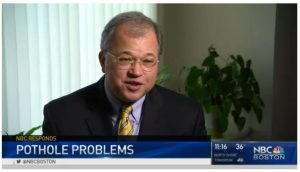 Just as sure as it brings snow, winter in Massachusetts always brings potholes. When drivers hit potholes, their cars can sustain major damage, sometimes totaling in the thousands of dollars. They often want to file a claim against the state or community which maintains the road.
Just as sure as it brings snow, winter in Massachusetts always brings potholes. When drivers hit potholes, their cars can sustain major damage, sometimes totaling in the thousands of dollars. They often want to file a claim against the state or community which maintains the road.
NBC Boston recently aired a story on what rights consumers have if their vehicle is damaged by a pothole (1/24/2017). Attorney David W. White was interviewed and delivered bad news for drivers. Under Massachusetts law, drivers do have 30 days to file a claim against a town or state. But drivers are unlikely to recover any money because the state and towns will claim “contributory negligence.”
“If you are one percent at fault, you get zero percent recovery,” he said.
We encourage you to watch the segment here: http://tinyurl.com/zlt8kvo.
About Breakstone, White & Gluck
The Boston car accident lawyers at Breakstone, White & Gluck are experienced at handling auto accident claims involving serious injury. If you have been injured, learn your rights. For a free legal consultation, contact us today at 800-379-1244 or 617-723-7676 or use our contact form.
Breakstone, White & Gluck Receives Nancy King Award for Highest Percentage of Attorneys Participating
Breakstone, White & Gluck has received the Nancy King Award for its 100 percent participation in last year’s annual Walk to the Hill for Civil Legal Aid.
The Equal Justice Coalition, which organizes the annual Walk, recently presented our firm with the award. Attorneys Marc L. Breakstone, David W. Whit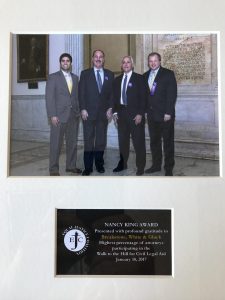 e, Ronald E. Gluck and Reza Breakstone participated last year.
e, Ronald E. Gluck and Reza Breakstone participated last year.
The Walk was held on January 28, 2016 at the State House in Boston. Hundreds of attorneys gathered in the Great Hall to hear from Chief Justice Ralph Gants of the Supreme Judicial Court and Attorney General Maura Healey. Several past presidents of the Massachusetts Bar Association participated, including Attorney David W. White, who served a term from 2007-2008.
The attorneys were then dispatched to speak to state Senators and Representatives and urge them to fund the Massachusetts Legal Assistance Corporation line in the Fiscal Year 2017 state budget.
Last year’s campaign was successful, which should provide good motivation for even more attorneys to attend again this year. Governor Charlie Baker approved $18 million in funding for civil legal aid in the final Fiscal Year 2017 Budget of the Commonwealth. This was a $1 million increase over the prior year’s funding.
With the additional funding, the Massachusetts Legal Assistance Corporation was able to help more low-income people facing homelessness, domestic violence, gain access to health care and other legal services.
To qualify for civil legal aid in Massachusetts, a family must earn no more than 125 percent of the Federal Poverty Level (or $30,375 a year for a family of four). Despite the increase, the Equal Justice Coalition reports that legal aid organizations are still forced to turn away 64 percent of those eligible because of a lack of funding.
This year, MLAC is seeking a $5 million increase for civil legal aid. To learn more about the event, visit http://equaljusticecoalition.org/.
2016 Walk to the Hill Attendance awards were recently presented to these firms:
• Nancy King Award: Breakstone, White & Gluck (highest percentage of attorneys participating)
• Highest Participation Award: WilmerHale
• Exceptional Support Awards: Foley Hoag and Ropes & Gray


